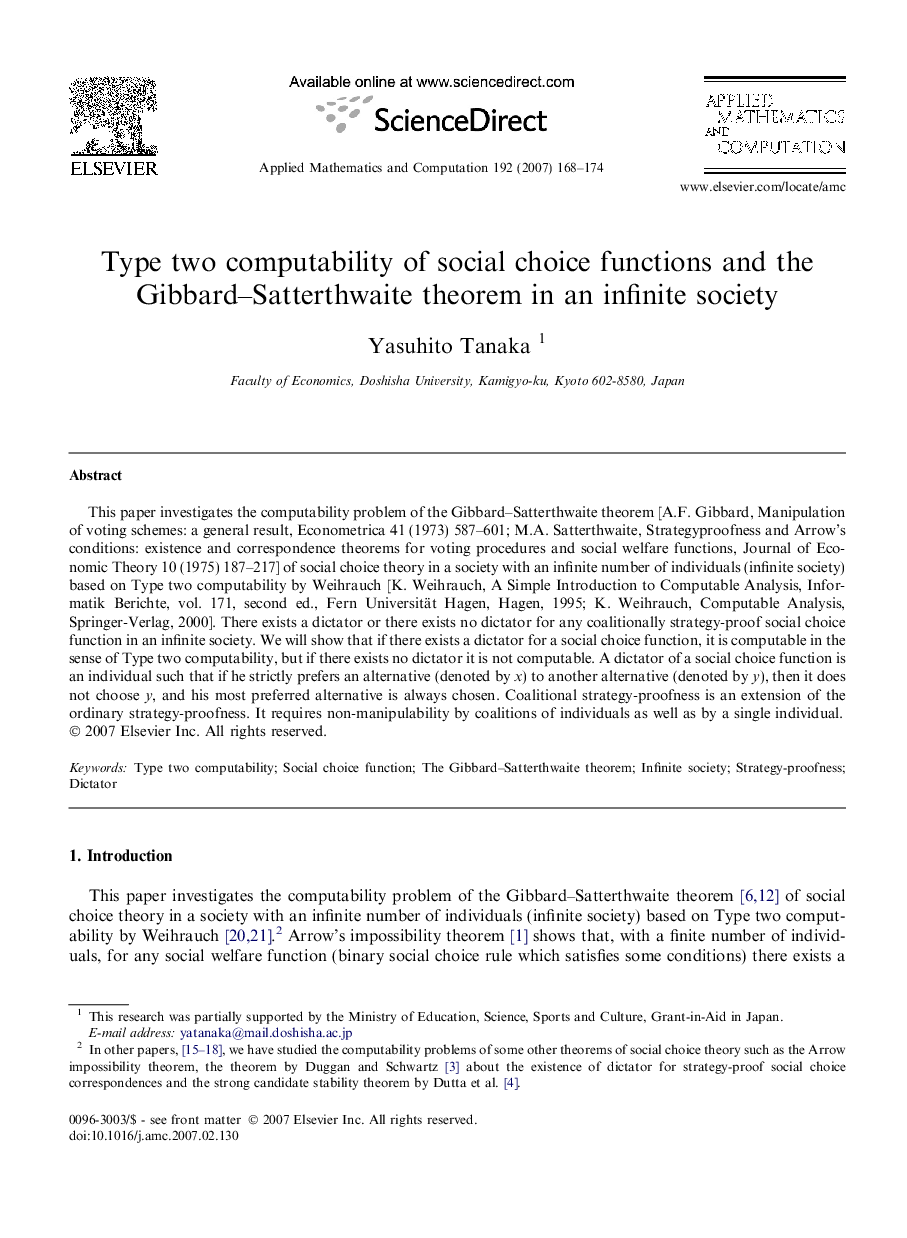| کد مقاله | کد نشریه | سال انتشار | مقاله انگلیسی | نسخه تمام متن |
|---|---|---|---|---|
| 4635062 | 1340705 | 2007 | 7 صفحه PDF | دانلود رایگان |
عنوان انگلیسی مقاله ISI
Type two computability of social choice functions and the Gibbard-Satterthwaite theorem in an infinite society
دانلود مقاله + سفارش ترجمه
دانلود مقاله ISI انگلیسی
رایگان برای ایرانیان
کلمات کلیدی
موضوعات مرتبط
مهندسی و علوم پایه
ریاضیات
ریاضیات کاربردی
پیش نمایش صفحه اول مقاله

چکیده انگلیسی
This paper investigates the computability problem of the Gibbard-Satterthwaite theorem [A.F. Gibbard, Manipulation of voting schemes: a general result, Econometrica 41 (1973) 587-601; M.A. Satterthwaite, Strategyproofness and Arrow's conditions: existence and correspondence theorems for voting procedures and social welfare functions, Journal of Economic Theory 10 (1975) 187-217] of social choice theory in a society with an infinite number of individuals (infinite society) based on Type two computability by Weihrauch [K. Weihrauch, A Simple Introduction to Computable Analysis, Informatik Berichte, vol. 171, second ed., Fern Universität Hagen, Hagen, 1995; K. Weihrauch, Computable Analysis, Springer-Verlag, 2000]. There exists a dictator or there exists no dictator for any coalitionally strategy-proof social choice function in an infinite society. We will show that if there exists a dictator for a social choice function, it is computable in the sense of Type two computability, but if there exists no dictator it is not computable. A dictator of a social choice function is an individual such that if he strictly prefers an alternative (denoted by x) to another alternative (denoted by y), then it does not choose y, and his most preferred alternative is always chosen. Coalitional strategy-proofness is an extension of the ordinary strategy-proofness. It requires non-manipulability by coalitions of individuals as well as by a single individual.
ناشر
Database: Elsevier - ScienceDirect (ساینس دایرکت)
Journal: Applied Mathematics and Computation - Volume 192, Issue 1, 1 September 2007, Pages 168-174
Journal: Applied Mathematics and Computation - Volume 192, Issue 1, 1 September 2007, Pages 168-174
نویسندگان
Yasuhito Tanaka,